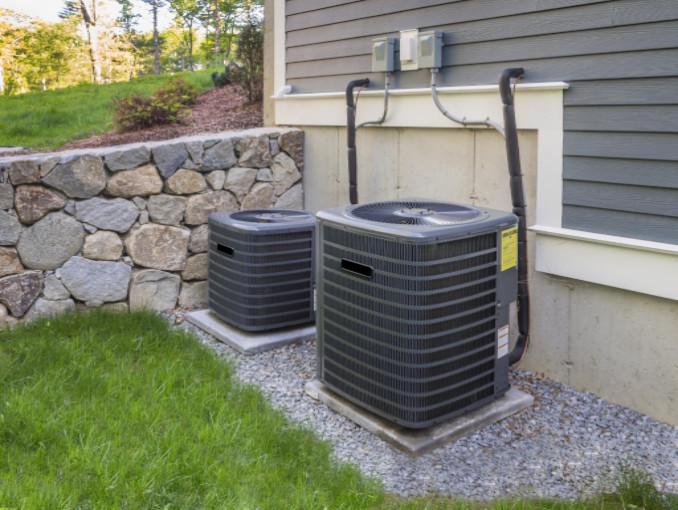Is your HVAC system over 10 years old, making strange noises, or costing you an arm and a leg to run each month? These are just some of the many reasons it may be time to replace it with a newer unit.
Heating and cooling accounts for over 40 percent of a home’s energy usage, and while replacing your residential or commercial HVAC system is a major investment, a newer and more efficient system will begin paying for itself in under a year.
Here are several signs it may be time to say goodbye to your old HVAC system once and for all:
It Was Installed Over a Decade Ago
Wines may get better with age, but HVAC systems certainly don’t. In fact, most HVAC systems only have a lifespan of 10-15 years. Older systems that still manage to run can be as much as 60 percent less efficient than newer models.
It would be a wise choice to replace your HVAC system with a newer unit if it was installed over a decade ago. Not only will you benefit from better air quality, but you’ll enjoy noticeable savings in the summer and winter months as well.
Your Energy Costs Are on the Rise
If you notice a substantial and steady increase in your energy bills, your HVAC system may be to blame. It’s common for HVAC systems to lose their efficiency over time and begin using up more energy. Most systems run constantly and efficiency declines with age, so if you notice your system running all the time or constantly turning off and on, it’s likely wasting energy and throwing your hard-earned dollars away.
To check if loss of efficiency is to blame and not just a series of hot or cold days, compare your energy bills over the past few months. If you notice an unseasonable jump in costs with average temperatures throughout the billing period, it’s a good indicator your HVAC system is either worn out and no longer efficient or needs repair.
Frequent Repairs Are Becoming the Norm
Regular maintenance is necessary for both newer and aging HVAC systems, and occasional repairs are inevitable for older units. However, if you know your HVAC guy on a first name basis, it’s probably time to consider another solution.
You Can’t Get Comfortable
If you’re often too cold or too hot and your HVAC system can’t keep up with your area’s cold winters or hot months, your system could be on its very last legs. It may also be undersized for your space and lack the correct load. In either case, you should do your comfort a favor by investing in a new system sooner rather than later.
Poor Indoor Air Quality
Older HVAC systems often struggle to keep dust, allergens and pollutants out of the air. Since keeping your home well-ventilated is one of your HVAC system’s primary jobs, a worn out and failing system can reduce ventilation and cause asthma, allergy issues and sickness. Excessive dust and poor air quality are serious issues that should be addressed as soon as possible. Without proper ventilation and good indoor air quality, your comfort and health may suffer.
Humidity
Many of today’s smart thermostats are designed to measure both temperature and humidity, allowing you to keep your home in the ideal range of 40-50 percent. Any lower and your comfort will suffer. Any higher and you create an environment for mildew and mold to grow while being uncomfortable as well. A well-functioning HVAC system will keep just the right level of humidity in your home and create a safe and comfortable environment to enjoy.
Overly Noisy Equipment
If you can’t hear yourself think, or the sound of the TV gets drowned out by the noise your HVAC system is making, it’s an obvious signal that something is wrong. HVAC systems that produce loud, strange noises usually need to be repaired or replaced, so if you’re hearing abnormal noises coming from your garage, basement or water closet, it may be time for you to look into a new one.
As you can see, there are many signs to look for when deciding on whether your HVAC system is past its prime and needs replaced. However, before investing in a whole new system, have a certified HVAC technician inspect your home’s insulation as well as the thermostat, ductwork and entire heating and cooling system for any major leaks or issues.
While most homeowners are better off going with a newer system, sometimes a minor repair is all that is needed.

